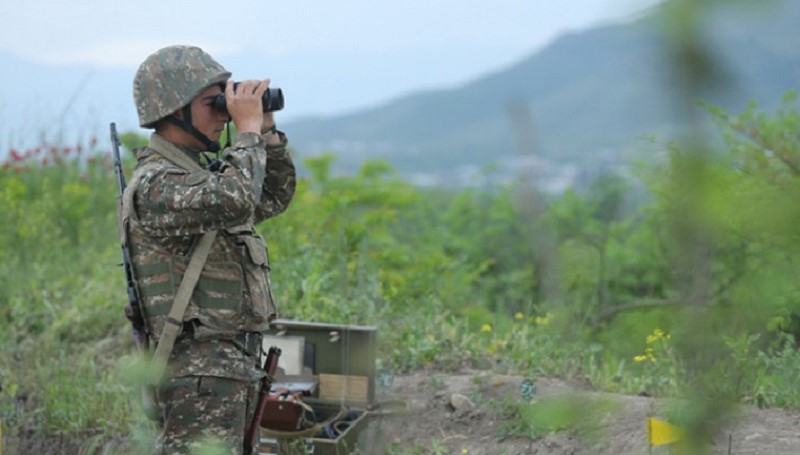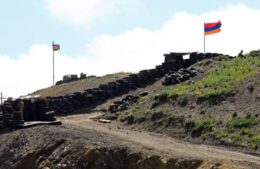U.S. Warns that Baku’s Land Corridor Demand ‘Elevates Risks’ of Armed Conflict
- (0)

The United States warned that Azerbaijan’s continued demand for a “land corridor” through Armenia to Nakhichevan will elevate the risk of armed conflict, saying that relations between Armenia and Azerbaijan will likely remain tense.
This assessment, made by the U.S. intelligence community, was made in the annual Worldwide Threat Assessment report presented to Congress on Monday by the leaders of the Office of the Director of National Intelligence, the CIA, FBI, the Defense Intelligence Agency and the National Security Agency.
“Relations between Armenia and Azerbaijan are likely to remain tense,” the report said.
“Nevertheless, the lack of a bilateral peace treaty, the proximity of their military forces, the lack of a cease-fire enforcement mechanism, and Azerbaijan’s readiness to use calibrated military pressure to advance its goals in talks with Armenia will remain,” the report added.
“The transition of N-K [Nagorno-Karabakh] governance from ethnic Armenians to Azerbaijanis and Azerbaijan’s demand for access to a land corridor linking Azerbaijan to its exclave will elevate the risk of armed confrontation,” the report emphasized.
Azerbaijan’s attack on Artsakh in September, that forced the mass exodus of its Armenian population, was also addressed in the report, with the U.S. intelligence agencies saying that “the rapid exodus of most of the region’s ethnic Armenian population and the planned self-dissolution of the government allowed Baku to advance plans to integrate the region with Azerbaijan, effectively removing this longstanding issue from the bilateral peace agenda.”
“Azerbaijan’s retaking of Nagorno-Karabakh has reduced volatility, and a military confrontation probably would be limited in duration and intensity,” the report added.
The report also contained an assessment of Armenia as it relates to U.S. policy on Ukraine, saying that Russia’s position in the region has been weakened.
“The renewed efforts of Armenia, Moldova, and some Central Asian states to seek alternative partners highlight how the war has hurt Moscow’s influence, even in the post-Soviet space,” the report said.
“Russia’s unwillingness to expend the resources and political capital to prevent Azerbaijan from reacquiring Nagorno-Karabakh from ethnic Armenians through a military offensive in September 2023 underscores how Moscow’s war in Ukraine has weakened its role as a regional security arbiter,” the assessment added.


















